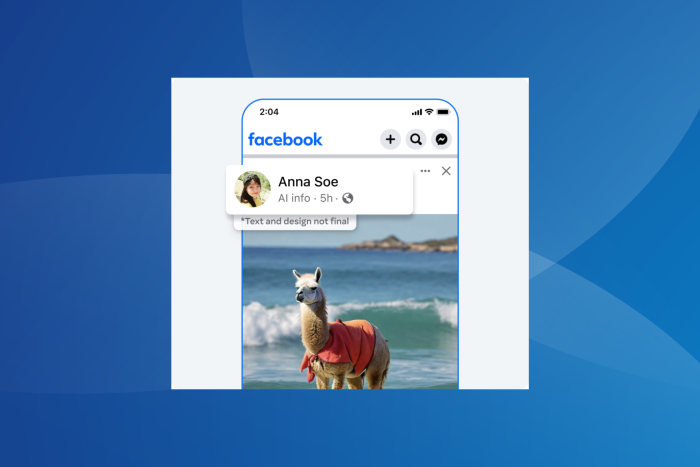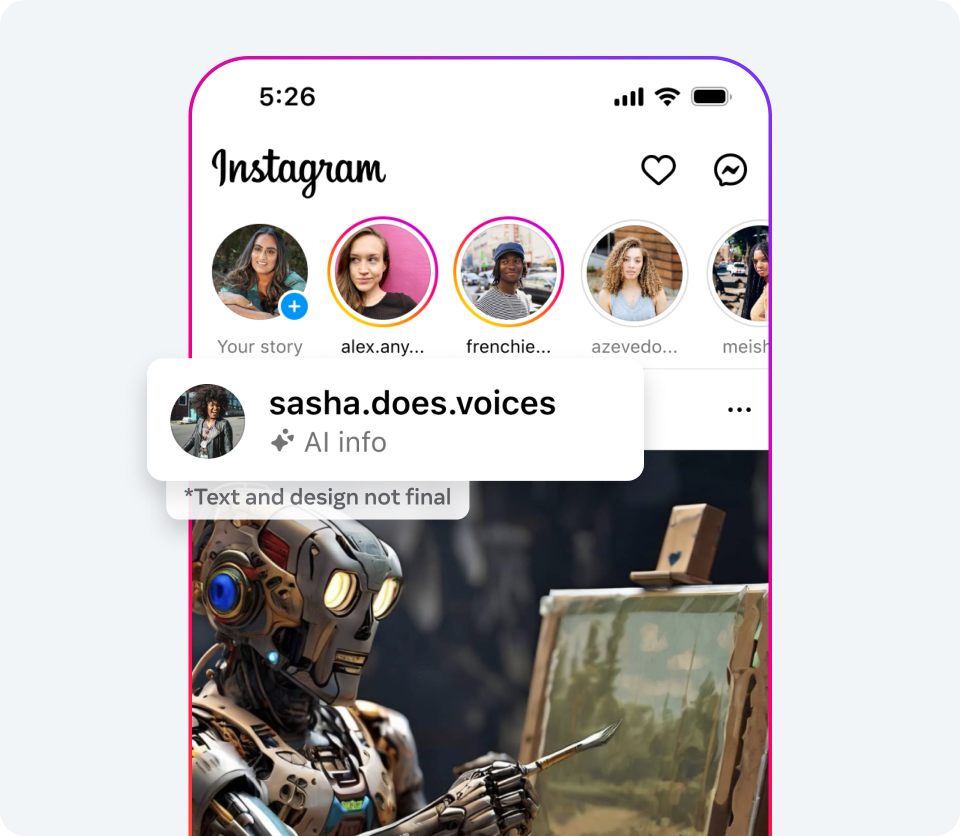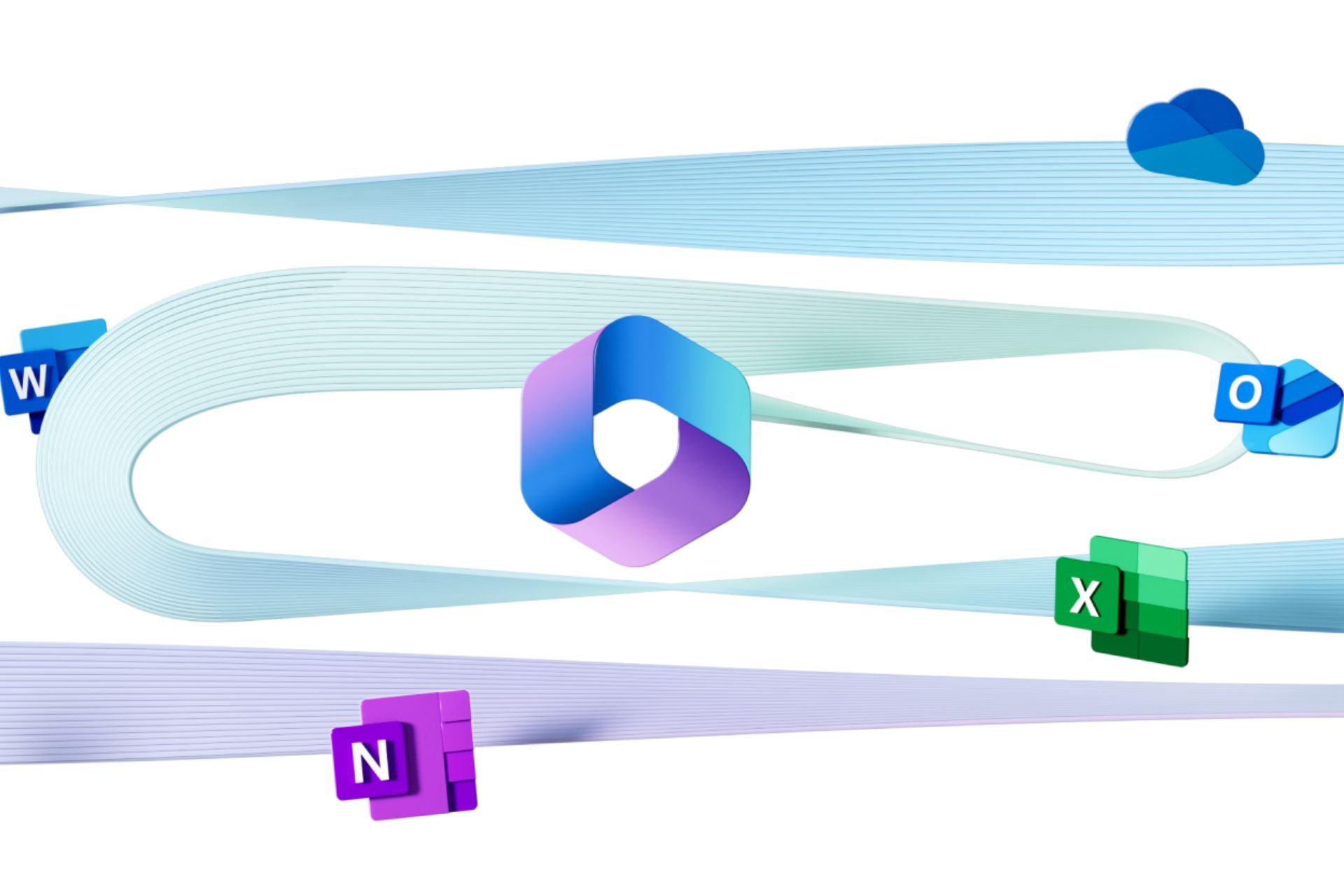Meta will expose AI-generated images on Instagram, Facebook & Threads
Other companies are working along similar lines
2 min. read
Published on
Read our disclosure page to find out how can you help Windows Report sustain the editorial team. Read more

In a bid to draw a clear distinction, Meta will, in the coming months, start to label images generated using AI. This will be applicable across Meta’s social networking platforms: Instagram, Facebook, and Threads.
Mark Zuckerberg’s Meta has already been labelling images created using Meta’s AI imaging, but with several other companies providing the service, it’s becoming a challenge to identify AI-generated photos and videos.
So, Meta is working with industry partners to set common technical standards to identify AI content.
In a blog post, Nick Clegg, President of Global Affairs, says,
Also, until it scales the capabilities of the existing system, Meta will add a feature where you can disclose whether the image or video is created using AI. Failure to do so may attract penalties. This also applies if the digital effects or audio is altered using a tool.
Besides, if Meta finds that a digitally created or altered image poses a high risk, it will add a prominent label to provide more information to users.
Why is there a need to label AI-generated images?
Experts from different quarters have long demanded that social media companies create a boundary between organic and AI content, given the meteoric rise and massive application of artificial intelligence worldwide.
This led to the rise of fake news. Though for it, you can always use a fake news detector.
Also, such content is often used to deceive the public, spread false narratives, create unrest, or instigate violence.
OpenAI, too, in a post on X (formerly Twitter), announced that images generated on its platform will now include metadata using C2PA specifications. This will allow easy identification, and the image can be appropriately labelled.
If you are an avid Facebook, Instagram or Threads user, don’t be surprised if you see certain images labelled as AI-generated.
Meta also informs that it will take this approach through next year, given the large number of important elections, to better understand how such content is created or shared.
While the blog post doesn’t mention WhatsApp, we expect AI content detection abilities to soon be implemented in the instant messaging and voice-over-IP service.
What do you think of this push by Meta? Do share your thoughts in the comments section.









User forum
0 messages